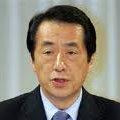Japan's PM Survives Leadership Challenge
An official of the Democratic Party of Japan announces that Prime Minister Naoto Kan has won the party leadership post.
Mr. Kan won 721 votes in Tuesday's election, compared with Ichiro Ozawa's 491 ballots. Since the DPJ controls the lower house of Japan's parliament, as leader of the party, Mr. Kan will stay on as prime minister. Speaking immediately following his re-election, Mr. Kan appealed for unity and pledged to revitalize Japan.
The prime minister says he will keep his promise to help the people. He expresses heartfelt appreciation for the support that was shown to him, especially by the DPJ's rank and file. Ordinary party members overwhelmingly backed him. His opponent Ozawa, a veteran powerbroker, captured the votes of nearly half of the DPJ's members of parliament. Ozawa resigned from the DPJ's second-highest post three months ago in a political funding scandal. He faces possible indictment on criminal charges.
While the candidates' speeches focused on Japan's ailing economy, many political analysts saw the campaign as an attempt by Ozawa to prevent being sidelined by the Kan administration. Some analysts predict the defeated Ozawa will break off from the DPJ, taking some lawmakers with him to form a new party or re-join the Liberal Democratic Party, which governed Japan for most of the post-World War Two era.
It has been a rough road for the inexperienced DPJ since it ousted the LDP and was swept into power one year ago. And the intra-party fight appears to have further weakened the left-of-center party.
The strong support Ozawa garnered among the party's members of Parliament could mean Mr. Kan may not enjoy the legislative clout he needs to tackle Japan's economic woes. The voting took place on a day that Japan's currency, the yen, rose to a fresh 15-year high against the dollar. A strong yen makes Japanese exports more expensive, and could undermine the country's fragile economic recovery. Mr. Kan came to power in June when Yukio Hatoyama suddenly resigned as prime minister. His administration had been plagued with plummeting popularity and funding scandals.

